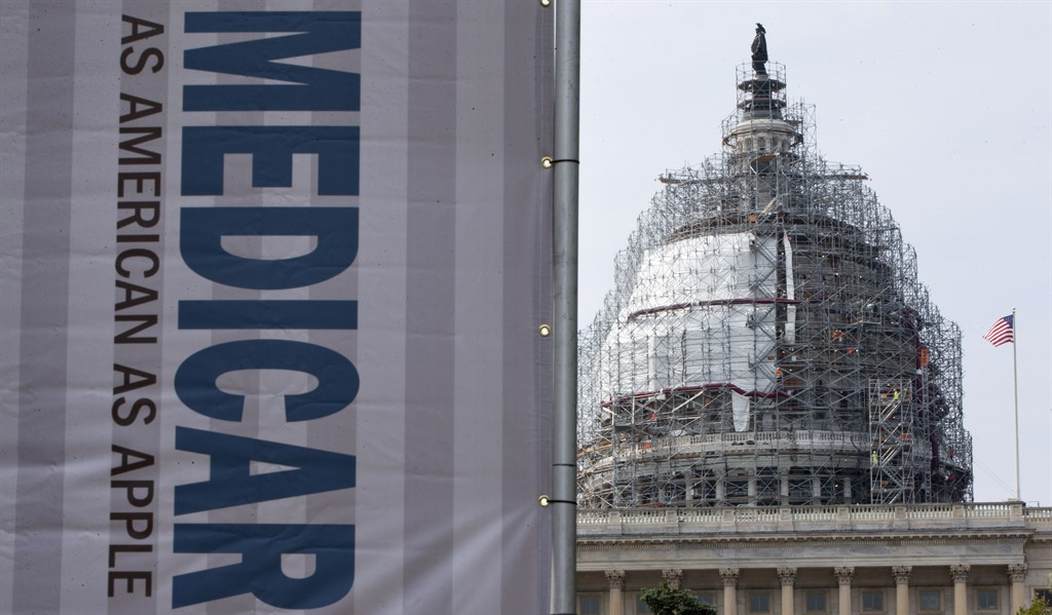As President Trump wages war on wasteful spending and DEI, a $16 billion-a-year health equity program is flying under the radar in Medicare.
Fortunately, it can be overturned with the stroke of a pen since it was spawned by overzealous regulators, not Congress.
In Medicare, health equity is less about hot-button issues and more about tapping deep-pocketed entitlements to fund unrelated social spending.
A good example occurred in 2019, when Medicare regulators created a new class of benefits to address "Social Determinants of Health" – the theory that insurance programs should fund people's everyday living expenses, not just pay medical bills.
These new "Special Supplemental Benefits for the Chronically Ill" allow Medicare Advantage plans to pay for groceries, housing, cable TV, cell phones, and many other non-health expenses. Some plans even cover dog food, golf lessons, and pickleball racquets.
This was an aggressive interpretation of the modest, bipartisan CHRONIC Act of 2018, which allowed plans to cover certain non-medical costs that directly improve health, like installing bathroom grab bars and mobility ramps in seniors' homes.
The law made no mention of Social Determinants or covering everyday expenses.
To facilitate the new benefits, Medicare plans created "Flex Cards," $1,000 pre-paid debit cards modeled on EBT cards in the SNAP program (formerly known as food stamps).
Some critics call them 'Health Equity ATM Cards' since they look more like cash handouts than legitimate Medicare benefits.
Flex Cards present three serious problems.
First, there's little oversight and zero anti-fraud protections. The government has no idea what the cardholders are buying since plans don't disclose that information. Although the cards have been in circulation for years, Medicare officials only recently clarified they can't be used to buy liquor and other inappropriate items.
Recommended
Flex Cards are a black box that undermines President Trump's call for "radical transparency" in healthcare.
Second, Medicare can't afford to fund new social welfare benefits without reducing medical coverage or increasing taxpayer costs.
Today there are 16 million Flex Cards in circulation. This means Medicare plans spend four times more on non-health expenses than hearing, dental, and vision benefits combined.
Advocates claim that paying for everyday expenses reduces long-term medical costs, but no actuarially-sound study backs up that claim. Medicare faces insolvency and can’t afford to duplicate existing anti-poverty programs.
Third, Flex Cards often serve as signing bonuses to recruit low-income enrollees to plans that cover both Medicare and Medicaid -- the most costly plans to taxpayers and the most profitable for insurers.
These plans deny coverage at twice the rate of other plans. This creates the appearance of a bait and switch, where Flex Cards lure cash-strapped seniors into plans with skimpier benefits.
An observer in a recent Health Affairs piece openly wondered if the cards are "a $1,000 a year bribe" to steer seniors into certain plans.
It would cost less to auto-enroll seniors in Medicare Advantage plans with an option to opt out of traditional Medicare.
Finally, spending on Flex Cards means less money for legitimate medical and prescription drug benefits. Medicare officials recently announced that anti-obesity drugs -- a major medical breakthrough – won't be covered even though doing so would cost far less than what’s spent on Flex Cards, according to the Congressional Budget Office.
Overall, the solution is straightforward: Return Medicare to its medical insurance roots and focus on improving health benefits.
Medicare regulators should add up all the costs of the program’s non-health benefits, eliminate those with no medical value, and use the savings to reduce medical and prescription drug costs.
Social needs like housing and food insecurity are important but unrelated to medical insurance. They should be addressed through targeted anti-poverty programs, not by siphoning Medicare funds.
If the Administration wants to end health equity in Medicare, it must revisit regulations that promote spending on things other than health care.
Mark Merritt is CEO of The Proactive Strategies Group and has served as a senior executive in several health industry organizations.

























Join the conversation as a VIP Member